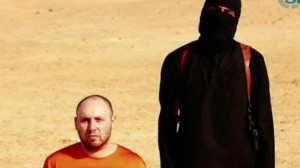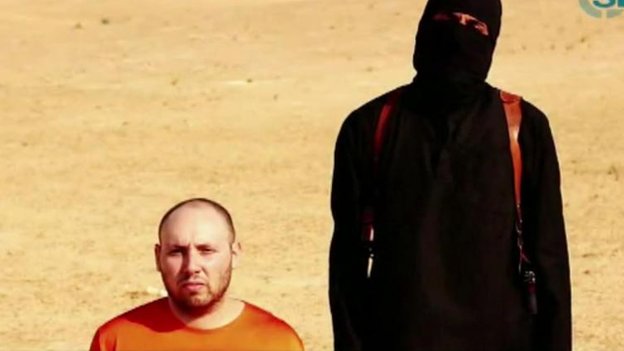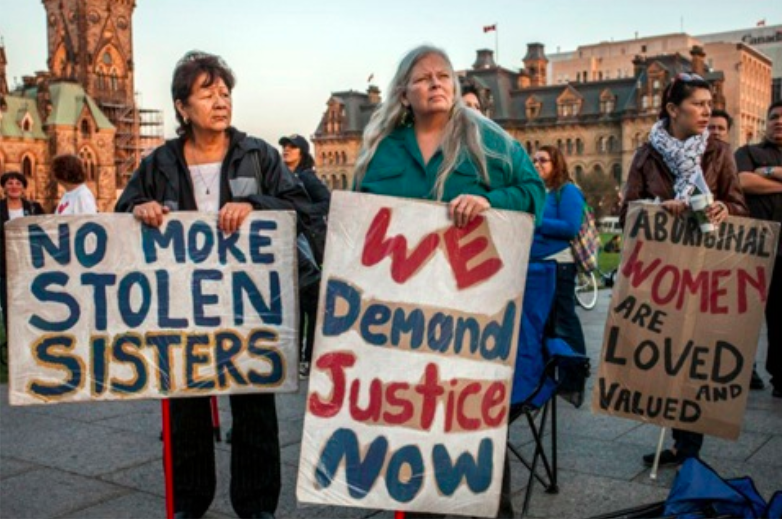
It is a scene that most closely resembles 16th century Tower of London, England, or a blood-filled battlefield during the time of the Crusades, hardly a country of the 21st century. Yet public executions in many developing nations are more common today than might be expected. The recent video-footage of four Western hostages being beheaded by members of the Islamic State (IS), has galvanized the international community in an effort to rid Iraq and Syria of radical extremists. By using words such as “medieval” and “archaic,” the media has constructed IS to be a unique and isolated case, with a sense of brutality and viciousness so despicably twisted that it stands alone as the single most dangerous entity that the world faces.
As horrific as their actions may be, the atrocities and the war crimes being conducted by IS are not necessarily novel, nor are they confined solely to that region of the world. The West may argue the importance of upholding transparent and accountable judicial systems, and for the respect of basic human rights, yet it is important to remember that the actions conducted by IS mirror legal structures found throughout the world.
Saudi Arabia:
Saudi Arabia may have joined the US-led coalition to “degrade and destroy” IS, but as the country also upholds strict Sharia law, Saudi Arabia does not oppose all the practices IS preaches. Under Sharia law, capital punishment in Saudi Arabia is extended to include murder, sexual assault, adultery, thievery, and drug possession. Drinking alcohol is also strictly forbidden, with the accused subject to flogging.
In 2013, 79 public executions were carried out, a startling number that is rising with 22 citizens executed in the month of August, 2014, alone. Saudi Arabia is also accused of conducting unfair trials, denying the accused access to lawyers, and engaging in lashings, beatings and sleep deprivations as a means of coerced confessions. The West may be quick to accuse IS of suppressing women’s rights and of engaging in practices most commonly associated with the Middle Ages, but such harsh criticism is not as commonly used against Saudi Arabia which considers sorcery a capital crime, and beheaded Abdulhalim Nassar in 2011 for “practicing witchcraft.”
North Korea:
In 2013, the UN Human Rights Council published the Commission of Inquiry on Human Rights in DPRK, outlining the crimes against humanity currently taking place within North Korea. The report lists enslavement, sexual violence, executions and lack of fair and transparent legal codes as factoring into North Korea’s violation of human rights. Satellite coverage has confirmed the the existence of political prison camps where forced labor, torture, and lack of basic food, water and proper sanitation are a daily occurrence. Many who are born within such camps remain there indefinitely, while crimes committed against prisoners are not held accountable by any legal doctrine or governing body. Chair of the UN report, Michael Kirby, criticized North Korea for engaging in war crimes on an equal scale to the atrocities committed by the Nazi Party during the holocaust of the Second World War.
Turkmenistan:
While not often covered by the international media, Turkmenistan is listed by Freedom House as being one of the most repressive countries in the world, putting it on par with North Korea and Somalia. Under the authoritarian rule of President Berdymuhamedov, citizens of Turkmenistan are subject to a continuation of the personality cult imposed by the late President Niyazov. The country restricts freedom of speech, association, religion, or movement. Its flawed legal system is subject to the will of judges appointed solely by the country’s president, and torture, including electrical shock, asphyxiation and rape are used against prisoners or those accused of engaging in criminal affairs.
Republic of Congo:
The 2014 Index of Economic Freedom rates the Republic of Congo as one of the most restrictive and repressive countries within Africa. Out of 178 states listed, the Republic of Congo ranked 172, behind Turkmenistan which was listed at 171. Since the country’s civil war in 1997 the Republic of Congo has remained deeply fragmented, giving way to armed militia groups such as the National Congress for the Defense of the People (CNDP) to engage in war crimes against its citizens. Sexual violence continues to be one of the most common crimes used by rebel forces, with forced labor, thievery and execution also used as weapons of war. Political violence and rampant corruption corrode to the country’s judicial structure, with torture commonly used within the prison systems.
Torture and violence have been employed by mankind since the dawn of civilization, and to this day continue to be used as weapons of war, or as means of imposing order. The highly publicized executions, acts of sexual violence and enslavement by IS have caught the attention of the international community, creating a coalition of states all with the goal to rid Iraq and Syria of the terrorist group and to impose some form of law and order within the region.
While the West may push the notion of a fight between good versus evil, it is important to acknowledge that by weakening IS and by instituting a democratically-inspired governing body, it cannot impose a sense of morality to overpower the violence and brutality that have been used by human beings the world over. The approach by IS to utilizing social media as a means of propagating its attacks makes it different from other regimes which choose to keep their use of violence behind closed doors, but that does not necessarily mean that IS is more dangerous or more aggressive than any other state. Hannah Styffe




